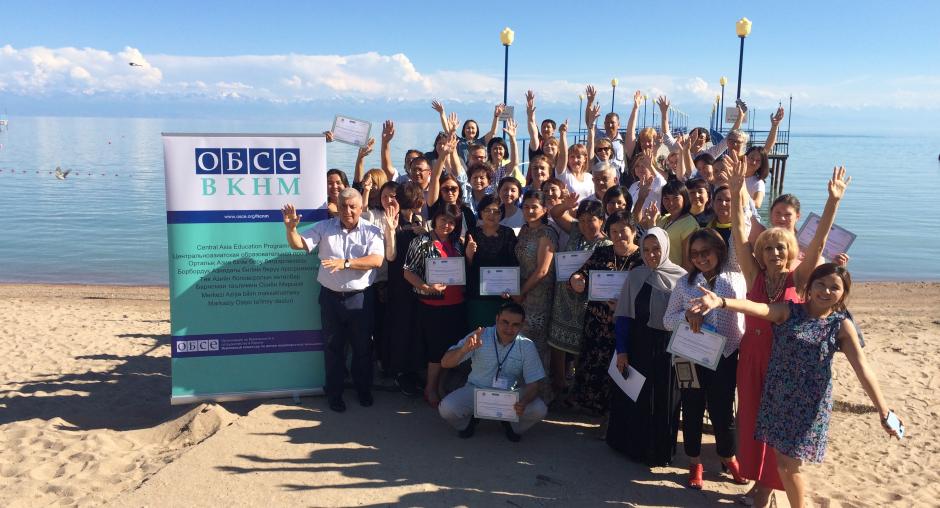OSCE High Commissioner on National Minorities supports development of tools for multilingual education in Central Asia

The office of the OSCE High Commissioner on National Minorities has gathered a group of international experts, researchers and professionals in the field of multilingual education to develop tools to support multilingual education in Central Asia.
The Regional Expert School on Multilingual and Multicultural Education for Integration and Sustainable Development is taking place from 1 to 5 July 2019 in Issyk-Kul, Kyrgyzstan.
It is the first time that experts and professionals from Estonia, Italy, Kazakhstan, Kyrgyzstan, Latvia, Moldova and Tajikistan have come together to produce a number of teaching guides and methodological materials to support practitioners providing multilingual education from pre-school to tertiary education levels in Central Asia.
Pierre von Arx, Head of the OSCE Programme Office in Bishkek, and Nadira Jusupbekova, Deputy Minister of Education and Science of Kyrgyzstan, officially opened the school on 1 July.
The experts will develop a plan to conduct research into the provision of multilingual education in the region, including analysing the current situation and assessing the impact of the initiatives already in operation.
The participants will work together on the production of methodological materials to support enhancements to multilingual education in the region. The expected outcomes will include guides on how to work with communities and parents to ensure the successful rollout of multilingual education in schools, how to set up a multilingual system in pre-schools; university curricula and programmes for teacher training; teaching materials, and an online course on Content and Language Integrated Learning.
The initiative is co-organized by the Ministry of Education and Science of Kyrgyzstan and UNICEF Kyrgyzstan.
The High Commissioner has been implementing the Central Asia Education Programme since 2012. The programme aims to promote multilingual and multicultural education and develop bilateral and multilateral co‑operation in the region to promote the integration of society.
